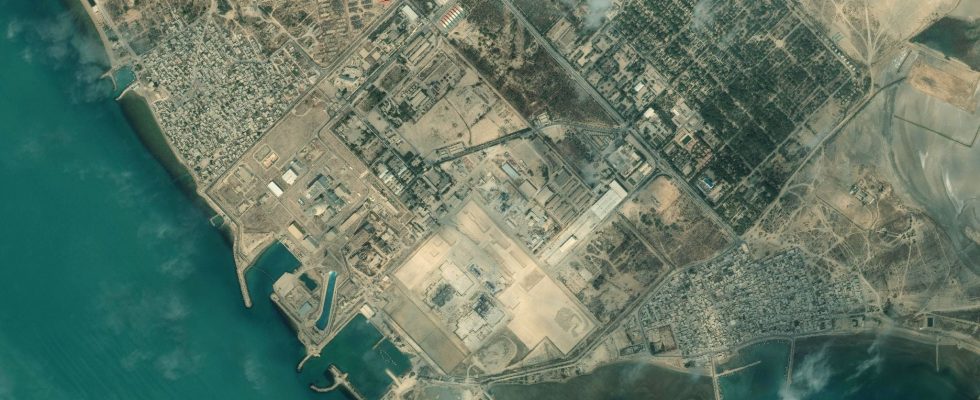“A step in the wrong direction.” It was with these words that inspectors from the International Atomic Energy Agency (IAEA) described the evolution of the Iranian nuclear program at the end of December. Since the suspension in 2018, by the United States of Trump, of the international JCPOA agreement (for Joint Comprehensive Plan of Action, joint global action plan), “Iran is giving itself the technical capabilities to increase, if it deems it necessary, the enrichment of uranium particles at 90%”, the first essential step before the militarization of the process, explains Héloïse Fayet, researcher at the Ifri security studies center. The next IAEA report, scheduled for February, should point to an acceleration in enrichment .
The issue had, however, experienced a period of de-escalation in the summer of 2023: the United States had allowed the unfreezing of a certain number of blocked funds, as well as the release of prisoners, in exchange for which Tehran had significantly slowed down its activities. uranium enrichment. The trend has since reversed. On the scientific side, despite the policy of targeted assassinations carried out by Israel against engineers, “irreversible” knowledge has been acquired, confirms Héloïse Fayet. The only option, almost impossible, now: “cut off the material means of advancing the program, by sealing installations and closely monitoring their activities.”
But IAEA agents have lost visibility: even if an advanced program would be harder to hide than in the 1990s, the world could suddenly discover that Iran has reached the atomic “threshold state.” Not to mention that it appears increasingly difficult to find levers to push them into negotiations, the desire of the current authorities in Tehran to find a diplomatic solution having weakened, in particular due to the disappointment caused by the American exit from the JCPOA. In 2018, Donald Trump decided unilaterally to end the agreement, as the country began to see its economy revived by the lifting of sanctions and the arrival of foreign investors. The Iranians, for their part, respected the terms of the agreement, and still remain signatories to the nuclear non-proliferation treaty. “To relaunch the discussion process, we would need a firm commitment from the United States that they will not withdraw from a new global agreement,” believes the Ifri researcher, something impossible to obtain in both camps, and even less likely if Donald Trump returns to power next November.
The role of Russia and China
Moreover, the current ruling elite, which repressed the “Women, Life, Liberty” movement, is not worried about the moribund economy, which weighs on the population. The International Monetary Fund expects inflation of 47% for 2023, while the country is hit by numerous sanctions, in particular because of the nuclear program, but also because of Tehran’s support for terrorist groups like Hamas or Hezbollah . The population, who had already demonstrated massively in the fall of 2022 following the death of Mahsa Amini, does not see favorably the priority given to external theaters, while difficulties accumulate inside . But the ultraconservative elite in power, close to the Revolutionary Guards, tends to take advantage of the situation, notably thanks to the black market.
As for the nuclear program, salvation could paradoxically come from the Russian and Chinese allies, who are not very favorable to an Iranian bomb. This could in fact lead to significant proliferation in the region: the Saudis, who are less advanced in the field but on the path to civil nuclear power, have made it known that they are not ready to let their great regional rival obtain the atomic bomb without reacting.
The fact remains that Tehran today does not necessarily have the political will to push its atomic development for fear of Israeli-American reprisals, insists Héloïse Fayet, while, moreover, their conventional deterrence remains effective, not to mention the support of the groups of the “axis of resistance”, such as Hamas, Hezbollah and the Houthis, which allow Tehran to control the region without risking a direct strike against its nuclear installations. Even though Iran has made a lot of progress in recent months, after 90% enrichment, steps are still needed for militarization. And if the Iranians ever move forward in the process, the question is: will they let it be known?
.
